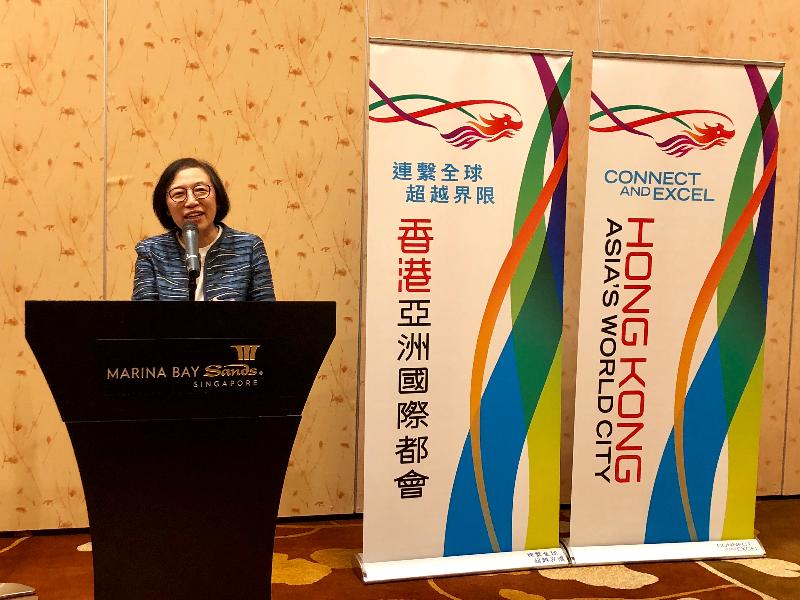CHP investigates case of human infection of rat Hepatitis E virus
The Centre for Health Protection (CHP) of the Department of Health is today (June 28) investigating a case of human infection of rat Hepatitis E virus (HEV) and urged members of the public to be vigilant against hepatitis E infection and to strictly observe good personal, food and environmental hygiene.
The case involves a 73-year-old man with underlying illnesses, who had presented with liver function derangement earlier this month. He has been in a stable condition all along and no hospitalisation is required. His blood sample tested positive for rat HEV upon laboratory testing.
The CHP’s epidemiological investigations revealed that the patient resided in Wong Tai Sin. He could neither recall having direct contact with rodents or their excreta, nor had noticed rodents in his residence. He had no travel history during the incubation period.
“Based on the available epidemiological information, the source and the route of infection could not be determined. The CHP’s investigation is ongoing,” a spokesman for the CHP said.
“The CHP has already informed the Pest Control Advisory Section of the Food and Environmental Hygiene Department about the case to carry out rodent control measures and survey as appropriate,” the spokesman added.
The exact mode of transmission of rat HEV to humans is unknown at the moment. Possible routes of transmission include ingestion of food or water contaminated by rodents or their excreta, exposure to environments or objects contaminated by rodents or their excreta and direct contact with rodents or their excreta. The usual HEV causing human infection is transmitted mainly through the faecal-oral route.
To prevent hepatitis E infection, members of the public should maintain good personal, food and environmental hygiene. For example, they should wash hands thoroughly before eating, store food properly or in the refrigerator, not leave food at room temperature for a long time, and use 1:99 diluted household bleach for general household cleaning and disinfection as household detergent may not be able to kill HEV. High-risk individuals, such as elderly persons with major underlying illness (especially those who have undergone organ transplantation), pregnant women, patients with chronic liver disease and patients with Glucose-6-Phosphate Dehydrogenase Deficiency (also known as G6PD Deficiency), who are infected with HEV may develop serious illness, so they should exercise extra caution.
The Five Keys to Food Safety should be adopted when handling food, i.e. Choose (choose safe raw materials), Clean (keep hands and utensils clean), Separate (separate raw and cooked food), Cook (cook thoroughly) and Safe Temperature (keep food at a safe temperature), to prevent food-borne diseases.
- Drink only boiled water from the mains or bottled drinks from reliable sources.
- Avoid drinks with ice of unknown origin.
- Purchase fresh food from hygienic and reliable sources. Do not patronise illegal hawkers.
- Clean and wash food thoroughly. Cook food, especially seafood (e.g. shellfish), pork and pig offal, thoroughly before consumption. Avoid raw food or undercooked food.
- Slice raw meat and offal into thin strips to allow thorough cooking, especially during hotpot or congee cooking.
- For sliced pig liver, depending on the thickness and quantity, boil at 100 degrees Celsius or stir-fry in hot skillet/wok for at least three to five minutes.
- Heating to an internal temperature of 90 degrees Celsius for 90 seconds is required for cooking of molluscan shellfish. If possible, remove the shells before cooking as they impede heat penetration. Otherwise, boil at 100 degrees Celsius until their shells open; boil for a further three to five minutes afterwards. Discard any shellfish that do not open during cooking.
- For meat and offal, make sure that juices are clear, not red, and blood is not visible when you cut the cooked meat and offal.
- When having hotpot, use separate chopsticks and utensils for handling raw and cooked foods to prevent cross-contamination.
In general, rodents (such as rats) can transmit multiple diseases to humans directly and indirectly. The public are advised to adopt the following measures:
- Eliminate sources of food and nesting places for rodents in the living environment. Store food in covered containers and handle pet food properly to avoid it becoming food for rodents;
- Store all refuse and food remnants in dustbins with well-fitted covers. Dustbins must be emptied at least once a day;
- Keep premises, especially refuse rooms and stairways, clean. Avoid accumulation of articles;
- Inspect all flowerbeds and pavements for rodent infestation regularly; and
- Avoid the high-risk activities below to reduce rodent contact:
– Avoid handling rodents with bare hands;
– Wash hands with liquid soap and water immediately after handling animals, and disinfect contaminated areas; and
– If a wound appears, clean the broken skin immediately and cover it properly with waterproof adhesive dressings. read more


